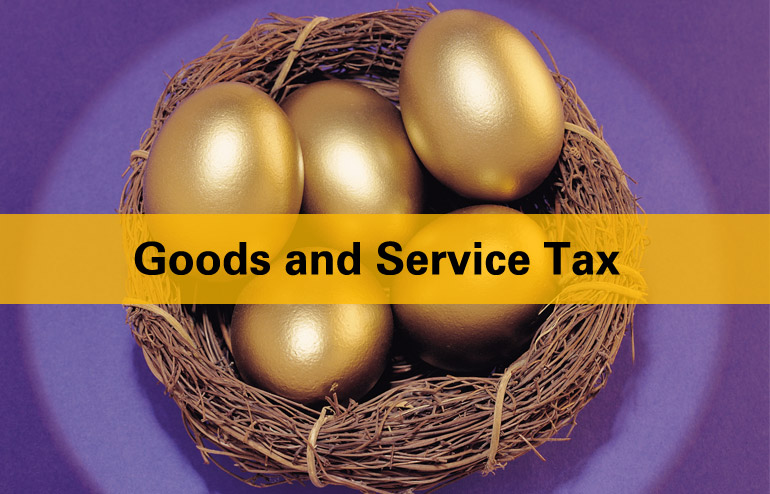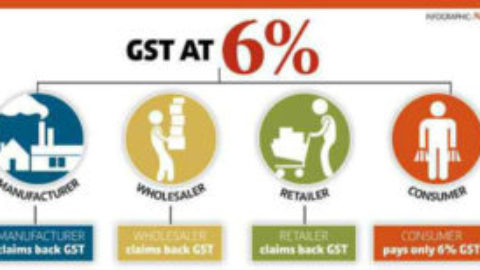GST to reduce corruption in India: Anil Agarwal
GST to boost India”™s strong growth: IMF
GST will drive country’s revenue, encourage voluntary tax payment to strengthen growth, make economy more predictable: PM Narendra Modi
The recently-passed Goods and Services Tax (GST) bill will simplify processes for the common man and boost the country’s revenues thereby aiding overall development. Implementation of Goods and Services Tax (GST) will help reduce corruption in the country. Earlier people were unwilling to pay taxes because of the country’s complicated multiple taxation process. However, the introduction of GST will encourage people to pay taxes of their own accord,the biggest finance and taxation reforms in India will benefit the common man, as it would bypass the additional cess of taxes, for instance when eating out in restaurants. Besides this, the introduction of GST will simplify the octroi process, which would ease movement of goods within states as well as reduce the mistrust between centre and states owing to one taxation system. It will make the whole process transparent, The recent formal adoption of a symmetrical inflation target by India should provide a robust institutional foundation for maintaining price stability.

How is GST different from Excise, VAT and Service Tax. Learn the advantages and disadvantages of GST.
-
What is GST?
Goods and Services Tax is also known as GST is a single indirect tax which will replace the following taxes with a single and much-reduced tax rate:
- Central Excise Duty
- Additional Excise Duty
- Service Tax
- Surcharge, Cess
- VAT/ Sales Tax
- Entertainment Tax
- Luxury tax
- Additional customs duty
- Special Additional duty of customs
- Taxes on lottery and betting
- Entry tax
- State ceases and surcharge
-
What are the benefits of GST?
For the Business
- Reduced Tax rates
- Easier compliance
For the Consumer
-
Lower prices
-
Difference between VAT and GST
VAT or Value added tax will be replaced by GST (State GST) and though very little clarity is present now, this will most probably be managed by the state. Unlike the current situation, GST will have a single and much-reduced tax rate, prompting more businesses to become transparent. The current VAT authority will continue to manage GST
-
Difference between Service Tax and GST
Like VAT, Service Tax will also be replaced by GST but might be managed by the Center. The dual tax points currently pose a difficulty in implementing the tax in India. It is to be seen how the empowered committee of the state finance ministers will come up with a solution for having a single tax rate. The current central administration will continue to manage GST
-
How to be prepared for GST?
GST will call for more transparency and increased enforcement of tax revenues. It would be important to track the input taxes and be ready for compliance.
Here are a heads up of what you can think of doing:
- If you are into manual billing systems, move to a computerised billing system
- Automate the system of adjusting input credits
- Get a real-time view of your tax liabilities across your business locations
To Know More watch the Video
A good online billing software like www.reachaccountant.com can make this transition a lot easier for your business.
To get a free consultation, Please call a consultant at 044-43578162












/0.png)
/1.png)
/2.png)
/3.png)
/4.png)
/5.png)
/6.png)
/7.png)
It depends on the tax structure and the type of goods a common man use/consume. As per the latest proposed GST tax structure , most the essential commodities will have either zero or 5% tax slab rate. But let’s wait for few more months to have complete idea on this!